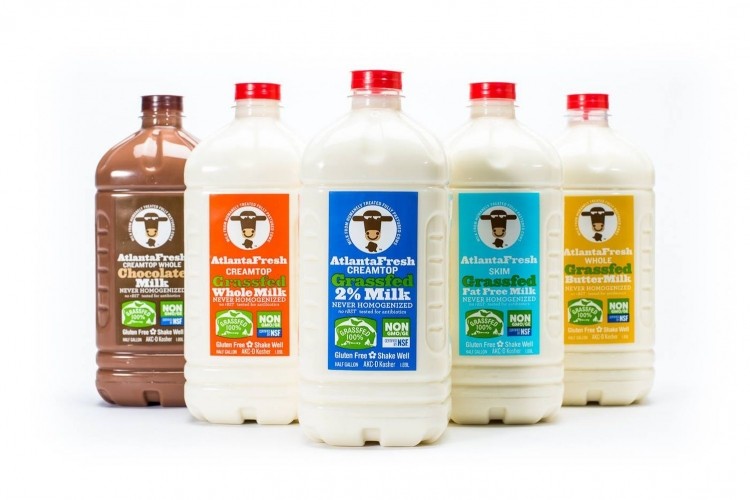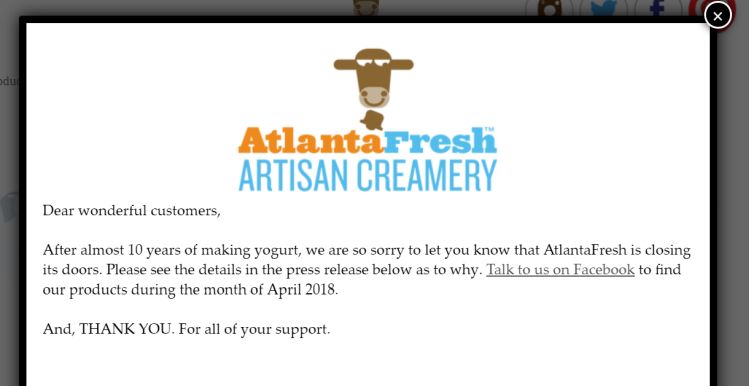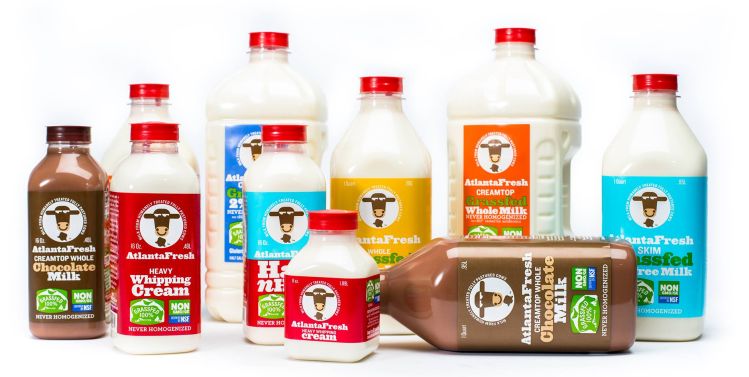AtlantaFresh closes its doors after Whole Foods terminates 7-year contract, 14 months in: 'In hindsight, we were naive.."

Speaking to FoodNavigator-USA after laying off 32 employees and shuttering his facility at Peachtree Industrial Blvd, Norcross, GA, CEO Ron Marks said he had signed a seven-year contract with Whole Foods commencing July 2016 to supply 100% grass-fed, certified Non-GMO milk and cream to three of its regions.
Under the contract – which allowed Whole Foods to terminate the contract without cause and without notice – Whole Foods committed to purchase 30,000 gallons of product from the facility per week, selling some products under the AtlantaFresh brand and some under its Lazy Meadows private label.
Marks – who had already been supplying Greek yogurt to 180 Whole Foods stores for several years and had built up a strong relationship with the retailer, took out a $500,000 loan with Whole Foods to expand the AtlantaFresh creamery, and took on an additional $2m in debt to build out the facility sufficiently in order to fulfill the contract (doubling its size to process 40,000 gallons a week).
Whole Foods' forecasts were way off
Soon after the milk and cream hit stores, however, it became clear that Whole Foods was not selling the quantities it had anticipated and that its forecasts had been “way off,” said Marks, who received written notice that Whole Foods would be dropping all products – including the yogurts, which he claimed were performing well - from Atlanta Fresh last September.
While he acknowledged that he had been naïve to sign a contract that enabled Whole Foods to terminate without notice, Marks said that the retailer had been confident that it would sell the quantities outlined in the contract, and that he had borrowed money to expand the facility on that basis.
The only penalty for early termination without cause was that they forgave the $500k loan
He added: “The only penalty for early termination without cause was that they forgave the $500k loan, but with hindsight I wish that I had secured stricter penalties for early termination, although at the time that could have been a deal-breaker. I assumed that such a large company, with all their experience they would have a clear idea of how much they would sell. I was too trusting.
“They only ended up using around 5,000 gallons a week [although Whole Foods purchased closer to 10,000 gallons/week, he noted]. Under the deal it was made clear that to give them the price they needed, they would be responsible for the marketing and demos – in two of the three regions it was sold under their private label. But apart from some radio support I was not aware of any significant marketing or promotional support.”
While AtlantaFresh had developed relationships with local foodservice companies, coffee shops, scores of natural and organic retailers, Publix and some other retailers, Whole Foods was by far its biggest customer, and he was not able to replace sufficient quantities of business at short notice to keep the plant running, said Marks.
He added: “If I had had 18 months to replace the lost business we could have done it, but not like this. We processed our last milk on February 22 and we’re now down to three employees. At this stage I am hoping that we can interest a regional dairy company that’s growing or a large dairy that wants to develop an R&D facility versus having to auction off the equipment and dissolve the company.”
Legal recourse
Asked what legal advice he had been given, he said: “I’ve spoken to lawyers about whether I have any legal recourse given that they had guaranteed that they would buy 30,000 gallons a week, but ended up buying far less, and have been told that it all depends on the judge.
"A conservative judge might say: 'They forgave the loan, as per the contract, what’s your case?' whereas a liberal judge might say: 'You invested based on a commitment to purchase product that they did not uphold,' and he might award you this sum of money, but then it could end up on appeal and take years to resolve.
“So we went through all the paperwork and sent Whole Foods an invoice for $15.2m [the difference between what Whole Foods had agreed to purchase and what it actually purchased while the contract was in place] and a week later we heard from the legal department and a date has been set for mediation.”
"We made significant efforts across the business to increase sales, including in-store marketing, paid advertising, special promotions and expanded distribution....Despite our efforts, we are not always able to raise demand..."
Whole Foods Market spokesperson
Whole Foods Market: 'We must occasionally make the difficult decision to discontinue products'
A Whole Foods Market spokesperson told FoodNavigator-USA that the retailer had done everything possible to ensure the success of the AtlantaFresh products, but that they were not meeting expectations.
The company added: “Local products are fundamental to Whole Foods Market, and we work closely with each of our suppliers to try to create successful relationships. We are always excited to bring new local products to our stores and customers, but, unfortunately, not all products meet sales expectations.
“When that occurs, we have ongoing conversations with the supplier to try to improve sales. In this case, we also made significant efforts across the business to increase sales, including in-store marketing, paid advertising, special promotions and expanded distribution.
"Despite our efforts, we are not always able to raise demand and we must occasionally make the difficult decision to discontinue products.”















